By 2030, significantly reduce illicit financial and arms flows, strengthen the recovery and return of stolen assets and combat all forms of organized crime
What does Target 16.4 mean for businesses?
There are many themes under Target 16.4 that are substantial and substantive in their own right. While it may not seem clear at first glance, these themes also have a significant impact on a business’ operations and relationships across a variety of sectors and, in some cases, affect all sectors of the business community. And while this target is relevant to a number of other targets across the SDGs, it is inextricably connected to and should be read together with Target 16.5 on the “substantial reduction of corruption and bribery in all their forms”, Target 16.2 to “end abuse, exploitation, trafficking...of children” and Target 16.1 to “significantly reduce all forms of violence and related deaths”.
Illicit financial flows and the role of professional gatekeepers
According to the International Monetary Fund (IMF) as discussed in The IMF and the Fight Against Illicit Financial Flows, illicit financial flows (IFFs) are defined as “the movement of money across borders that is illegal in its source, its transfer or its use”. These flows move through bribery and corruption, money laundering, tax evasion and financing of terrorism or other forms of organized crime including illegal arms flows, sex trade and drug trade, human trafficking and wildlife trafficking (SDG 15: Life on Land). Global Financial Integrity estimates that IFFs account for an estimated $1 trillion in stolen revenue globally each year. This is particularly harmful to disenfranchised and vulnerable populations as it undermines efforts for a given country to invest in essential public services, economic and social development and the SDGs more broadly. It also undermines access to justice and the rule of law (Target 16.3), trust in public and private institutions (Target 16.6) and political stability (Target 16.7).
In 2021, the UN High-Level Panel on International Financial Accountability, Transparency and Integrity (FACTI) released its Financial Integrity for Sustainable Development Report, which provides comprehensive findings and a list of recommendations addressing the aforementioned challenges and more. At its core, the report calls for “[a]n entire ecosystem approach to address the shortcomings of the present patchwork of structures and adapt them to ever-evolving risks. It should have a unified aim: to foster integrity for sustainable development. This will require three types of actions: reinforcing values for integrity, strengthening policy frameworks and redesigning institutions”. While this recommendation relates mostly to public institutions and officials, as noted in Financial Times Moral Money, it is also relevant to businesses and those who advise them. Their objective should be to restore integrity and trust by not engaging in corporate profit-sharing, opaque corporate structures and tax avoidance schemes.
Indeed, businesses may find themselves at the center of such activities in a variety of ways — whether as direct beneficiaries or as “professional gatekeepers” (see example below). For instance, while tax evasion is illegal, businesses will often seek ways to reduce their tax obligations through aggressive tax avoidance schemes and complex corporate structures that are legal. These practices have come under increasing scrutiny in recent years with calls from responsible businesses and civil society for ultimate beneficial ownership transparency and the adoption of responsible taxation principles. Additionally, the Organisation for Economic Co-operation and Development (OECD), along with over 135 countries, has developed the base erosion and profit sharing (BEPS) framework, which seeks to put an end to tax avoidance strategies that exploit gaps and mismatches in tax rules to avoid paying tax. In this context, among a variety of others, businesses and their legal advisers — within companies and firms — are strongly encouraged to consider the question: even if there is the legal right to do something, is it the right thing to do?
Global scandals such as the Panama Papers and Paradise Papers recently highlighted the fact that certain professions inadvertently or overtly serve as “professional gatekeepers”. The term refers to those industries and professions that may assist businesses, Government officials and other (often prominent) individuals to facilitate the transfer of illicitly obtained assets and financial flows or to otherwise avoid or evade taxes. Such industries and professions include in-house accountants and accounting firms; arts and antiquities dealers; banking and financial services; in-house lawyers and law firms; notaries and real estate agents; and other management and professional services firms.
The World Bank and UN Office on Drugs and Crime (UNODC) have joined forces to establish the Stolen Asset Recovery Initiative (StAR) to support international efforts to end safe havens, prevent money laundering and recover stolen assets. Notably, organizations such as Transparency International and the World Economic Forum are raising awareness among, and are working with, professional gatekeepers to be part of the solution.
Combat all forms of organized crime (including arms flows, drug and sex trade, human trafficking and wildlife trafficking)
The term “organized crime” may not be seen as immediately relevant to businesses; however, upon further inspection, this aspect of this target is highly relevant to a business’ operations and supply chains. This relationship is especially true with respect to human trafficking across many sectors and, to a lesser extent, arms flows, drug and sex trade and wildlife trafficking as it relates to specific industries such as defence and security, ports and shipping and other modes of transportation. Organized crime can also include cybercrime, counterfeiting and contraband and asset misappropriation, all of which have a financial impact on the private sector.
The scourge and scope of organized crime are pernicious and persistent — and almost always out of plain sight. It is for this reason that businesses must ensure they are conducting the necessary environmental and human rights due diligence and implementing other risk mitigation measures to ensure they are not directly connected or complicit in such activities.
Further to those already mentioned, the following are some notable initiatives, reports and statistics that shed light on the devastating impact these issues have on society:
- The FACTI Financial Integrity for Sustainable Development (2021) report includes the 14 recommendations to reform, redesign and revitalize the global architecture to foster financial integrity for sustainable development.
- The UNODC Global Report on Trafficking in Persons (2020) notes that for every ten victims detected globally, five are adult women and two are girls. Migrants account for a significant share of the detected victims in most regions. It is also worth noting that many of these reach the supply chains of large national and multinational corporations.
- The UNODC World Wildlife Crime Report (2020) highlights that the heedless exploitation of nature by humans has led to unprecedented biodiversity loss and a worsening climate crisis. It is also a threat to human health as highlighted by the COVID-19 pandemic. The report notes that 75 per cent of all emerging infectious diseases are zoonotic, transferred from animals to humans and largely facilitated by environmental destruction and wildlife crime.
- The OECD Ending the Shell Game: Cracking down on the Professionals who enable Tax and White Collar Crimes (2021) sets out a range of strategies and actions for countries to tackle professional intermediaries who enable tax evasion and other financial crimes on behalf of their criminal clients. The report highlights the damaging role played by these intermediaries and the importance of concerted domestic and international action in clamping down on the enablers of crime. It includes recommended counter-strategies for deterring, disrupting, investigating and prosecuting the professionals who enable tax and white-collar crimes.
How should businesses implement Target 16.4?
The business community benefits tremendously from equitable and transparent tax and trade policies as well as from consistent and inclusive regulatory environments more broadly. Businesses and professional gatekeepers could and should play a critical role in subverting illicit financial flows and illicit transfer of assets and in combating all forms of organized crime. This focus includes establishing voluntary standards across certain professions/sectors; implementing robust anti-corruption and human rights due diligence policies and practices; and collaborating with relevant law enforcement authorities in the prevention and remedy of these illicit and illegal activities.
Moreover, businesses are encouraged to support Governments in developing and maintaining responsible business environments. Businesses can do their part in building trust by focusing on ethical compliance and conduct, particularly in jurisdictions where governance institutions are weak. They can be more transparent in their practices and paying their fair share in taxes. Notably, The B-Team released A New Bar for Responsible Tax: The B-Team Tax Principles, which were developed through dialogue with a group of leading companies with contributions from civil society, institutional investors and international institution representatives. These principles aim to establish the principles and an approach to taxation that businesses can endorse to demonstrate responsibility and play their part in creating a stable, secure and sustainable society. In addition, the UN-supported Principles for Responsible Investment (PRI) released Evaluating and Engaging on Corporate Tax Transparency: An Investor Guide, which serves as an investor tool drawing on key trends and gaps observed in the current status of corporate income tax disclosure practices.
Here are some ways businesses can take action
Culture and board/management oversight
Ensure that the principles of good governance are adhered to at all levels of the organization, including board and management oversight, and by all personnel based in countries/jurisdictions beyond the location of corporate headquarters.
Awareness, education and training
Develop and facilitate training that creates awareness to identify and mitigate IFF, human trafficking and other forms of organized crime, including as they relate specifically to the business and/or function and consistent with local laws and international standards. If the laws are weak in a given jurisdiction, businesses are encouraged to apply the higher standard wherever possible.
Policies and processes
Develop and implement robust anti-corruption, environment and human rights due diligence to be applied wherever relevant across functions, operations and stakeholders, including client transactions and supplier relationships. Where relevant, engage in heightened due diligence where the risk of financial crime is categorically high and where clients raise red flags during the course of a given transaction. Review characteristics and metrics that trigger both systematic and risk-based heightened due diligence on a regular basis and update processes accordingly. Establish a system for obtaining and retaining beneficial owner information and addressing non-disclosure. Such a system should include robust “Know Your Customer” policies and processes.
Grievance mechanisms and access to remedy
Develop, implement, monitor and adequately resource internal grievance mechanisms through which employees and external parties can safely report any adverse business, client or supplier conduct relating to IFF, human trafficking or other forms of organized crime. Mechanisms should protect whistle-blowers against retaliation and provide access to effective remedy for adversely affected parties.
Reporting and risk management
Ensure that any risks with respect to IFF, human trafficking and exposure to other forms of organized crime are accurately identified, reported and effectively managed and audited. Compliance should be ensured with any national and regional legislation and, wherever possible, other international standards and voluntary benchmarks or frameworks.
Board/management oversight, culture, strategies, policies, operations and relationships
Advocacy
Lead, promote and support the development of and/or adherence to strong national and international frameworks that address IFF, modern slavery and other forms of organized crime. Businesses should advocate for responsible taxation practices, ultimate beneficial ownership registers and a unifying framework for professional gatekeepers.
Influence
Support efforts to educate communities and other stakeholders on the possible forms of, and settings where, instances of IFF, human trafficking and organized crime can occur. Encourage reporting of any instances to the relevant authorities.
Capacity building
Work with law enforcement agencies and civil society organizations to identify, apprehend and prosecute any suspected perpetrators of IFF, human trafficking or organized crime and in the recovery of stolen assets.
International cooperation and partnerships
Engage with the UN and other multilateral organizations and business/industry associations to raise awareness and actively tackle all forms of IFF, human trafficking and organized crime. This engagement is particularly effective given the inherently sensitive nature of these issues and the need for global cooperation to address them.
Collective action and collaboration
Share best practices across borders and industries. Help peers overcome implementation barriers or transform entrenched, ineffective practices. Share relevant information about clients, subject to legal and professional obligations. Look for mutually beneficial opportunities for public-private collaboration and collective action.
Institutions, laws and systems at the international, national and municipal levels
Here are some ways businesses are taking action
-
Group of Global Banks Working Together to Combat Financial Crime Risks
The Wolfsberg Group is an association of 13 global banks that develop and promote guidance for the management of financial crime risks, including Know Your Customer, Anti-Money Laundering and Counter-Terrorist Financing Policies. (Source)
- Transparency International Gathers Academics, Businesses, Civil society and Government Agencies Calling for the End of Anonymous Shell Companies
Further to the FACTI report findings, Transparency International submitted an appeal to the UN General Assembly from more than 700 signatories calling for a renewed global standard on transparency in corporate ownership. The list of signatories included renowned academics and research centers, companies and business executives, civil society groups and activists as well as several Government agencies and public officials. The appeal comes ahead of the UN General Assembly Special Session Against Corruption (UNGASS 2021). It asks that UNGASS 2021 commits all countries to set up national public registers of companies that require disclosure of the real individuals who own, control or benefit from them. (Source)
- World Economic Forum “Unifying Framework” for Professional Gatekeepers
The Forum’s Global Future Council on Transparency and Anti-Corruption and the Partnership Against Corruption Initiative (PACI) have launched a new initiative that seeks to solicit professional gatekeepers from different sectors to act as guardians of a corruption-free world. The task force comprises representatives of various gatekeeper industries and professions and other stakeholders. The initiative released The Roles and Responsibilities of Gatekeepers in the Fight Against Illicit Financial Flows: A Unifying Framework on the margins of the UN General Assembly Special Session Against Corruption in June 2021 (UNGASS 2021). The Framework, which outlines a set of practices designed to mobilize the three core principles of integrity, transparency and accountability within and across gatekeeping industries. It is envisaged that the framework will be endorsed and implemented by key gatekeepers from different sectors. (Source)
Some industries that could/should contribute to achieving Target 16.4
This list is not exhaustive but rather intended to invite businesses to consider how their sector could or should contribute to this target.
- There is arguably a special responsibility attributed to “professional gatekeepers” given the exposure and proximity to such illicit and illegal activities. Such gatekeepers include industries and professions such as in-house accountants and accounting firms; arts and antiquities dealers; banking and financial services; in-house lawyers and law firms; real estate agents; and other management and professional services firms.
- This target is also highly relevant across a number of industries that may directly or indirectly be affected by or involved in the facilitation of illicit financial flows, human trafficking and other forms of organized crime whether through their own operations or relationship with clients or suppliers.
Some intersections with Target 16.4 and the Ten Principles, UNGPs and SDG16+
These intersections are not exhaustive but rather intended to demonstrate how foundational SDG 16 and, specifically, this target are.
Inspired by the Ten Principles and UNGPs
Accountability, integrity and transparency, mandatory human rights due diligence, human trafficking/modern slavery, gender-based violence, child labour, exploitation of migrants and undocumented individuals and environmental protection, including biodiversity and wildlife.
Inspired by the Pathfinders SDG16+ Roadmap
SDG 4: Quality Education
- Culture of peace and non-violence and education on human rights and gender equality (Target 4.7)
- safe and non-violent education facilities (Target 4.a)
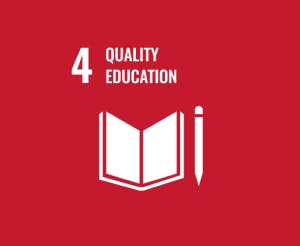
SDG 4: Quality Education
SDG 5: Gender Equality
- Discrimination against women and girls (Target 5.1)
- Violence against women and girls (Target 5.2)
- Women’s participation and leadership (Target 5.5)
- Policies and legislation for gender equality (Target 5.c)
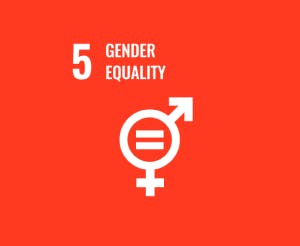
SDG 5: Gender Equality
SDG 8: Decent Work and Economic Growth
- Equal pay for work of equal value (Target 8.5)
- Forced labour, modern slavery and human trafficking, including child labour and child soldiers (Target 8.7)
- Labour rights and safe workplaces (Target 8.8)
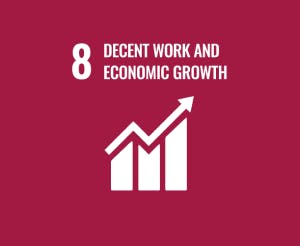
SDG 8: Decent Work and Economic Growth
SDG 10: Reduced Inequalities
- Social, economic and political inclusion (Target 10.2)
- Equal opportunity laws, policies and practices (Target 10.3) Policies for greater equality (Target 10.4)
- Global financial and economic institutions (Targets 10.5 and 10.6)
- Safe migration and policies (Target 10.7)
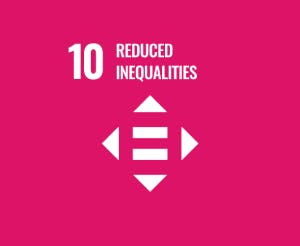
SDG 10: Reduced Inequalities
SDG 11: Sustainable Cities and Communities
- Safe housing (Target 11.1)
- Safe transport (Target 11.2)
- Safe public spaces (Target 11.7)
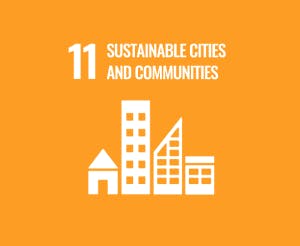
SDG 11: Sustainable Cities and Communities
SDG 15: Life on Land
- Urgent action to end poaching and trafficking of wildlife (Target 15.7)
- Enhance global support to combat poaching and trafficking of protected species (Target 15.c)
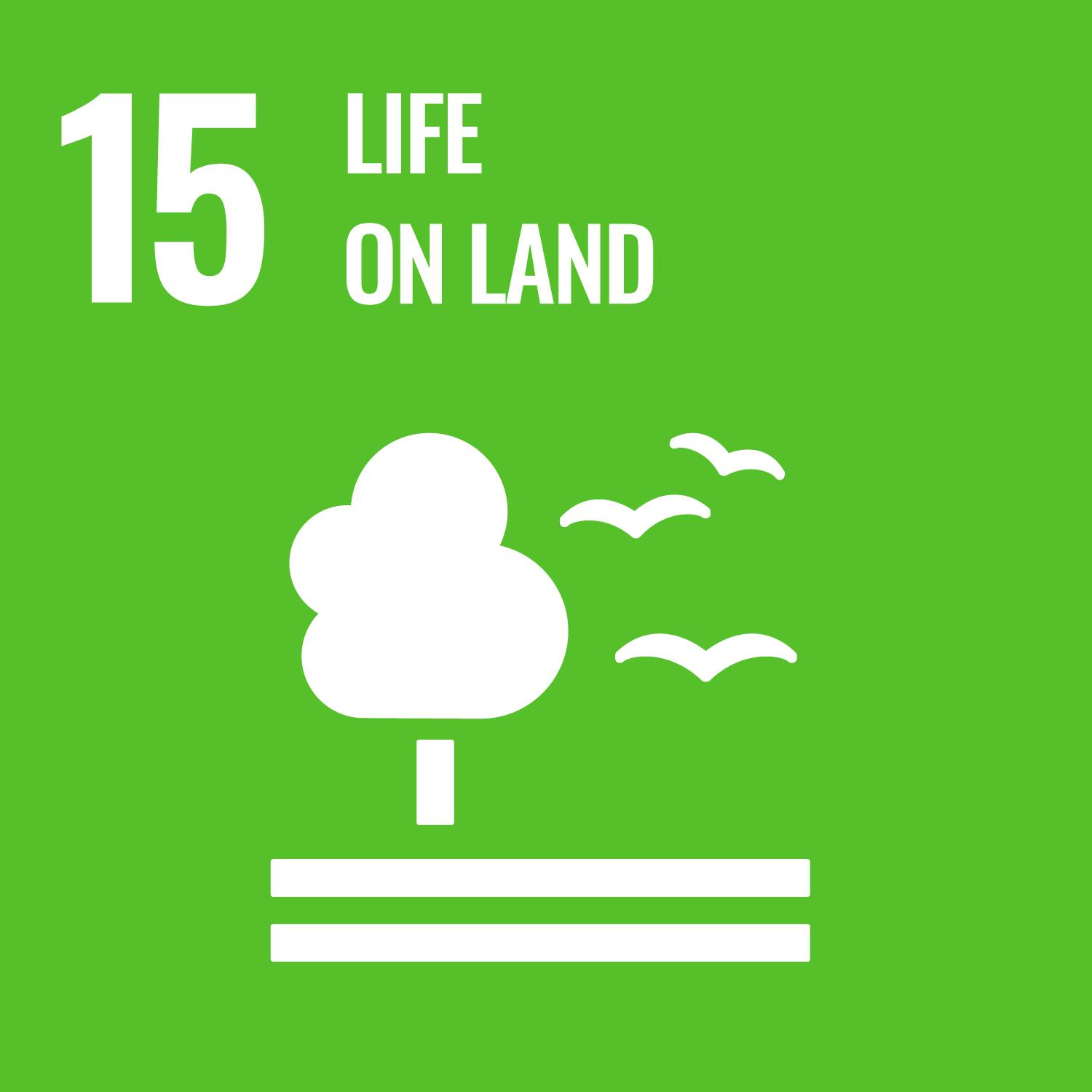
SDG 15: Life on Land
SDG 16: Peace, Justice and Strong Institutions
- All forms of violence (Target 16.1)
- Violence against children (Target 16.2)
- Access to justice and the rule of law (Target 16.3)
- Corruption and bribery (Target 16.5)
- Effective, accountable and transparent institutions at all levels (Target 16.6)
- Participation in global governance (Target 16.8)
- Legal identity (Target 16.9)
- Public access to information (Target 16.10)
- Violence prevention (Target 16.a); non-discriminatory laws and policies (Target 16.b)
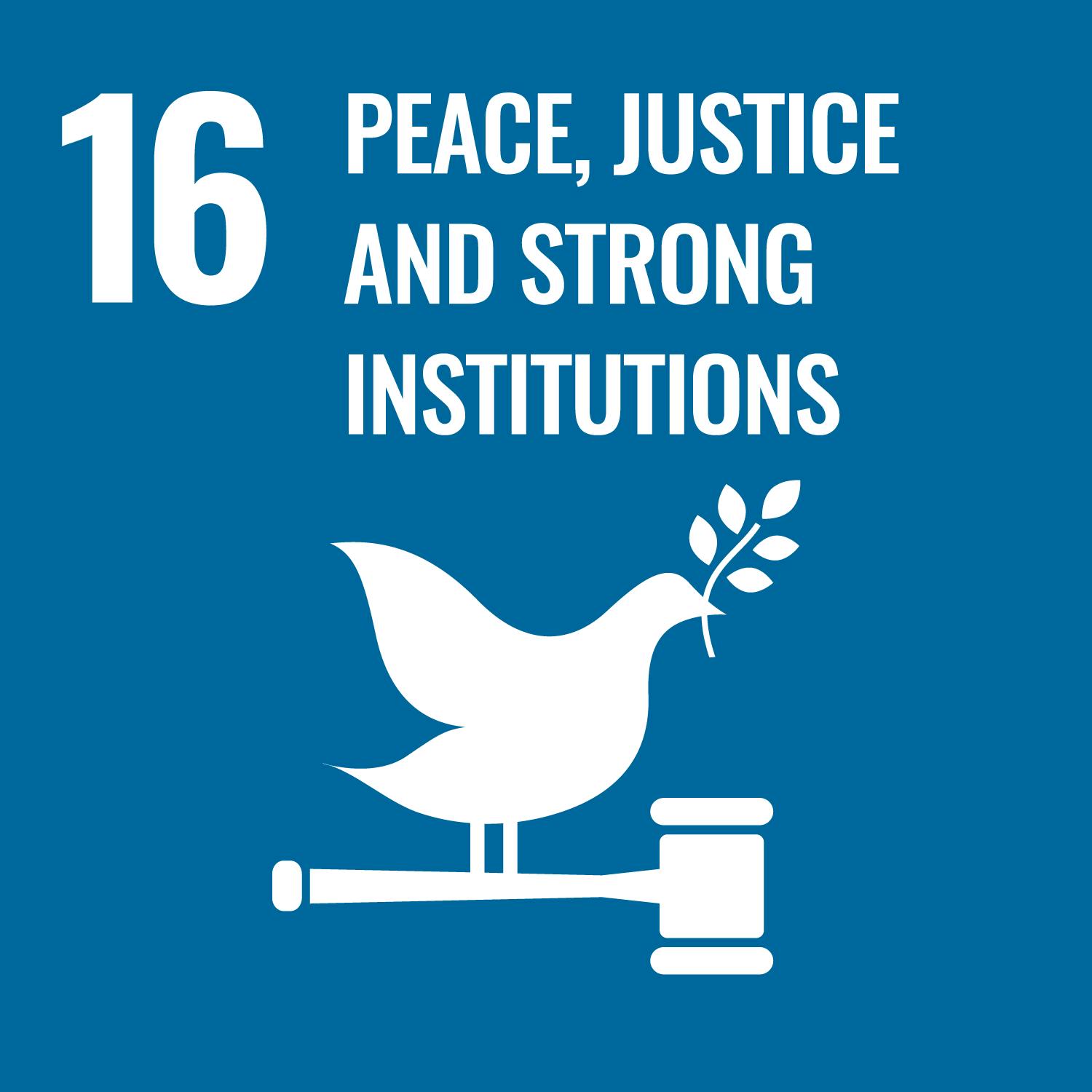
SDG 16: Peace, Justice and Strong Institutions
SDG 17: Partnership for the Goals
- Tax collection (Target 17.1)
- Equitable trade system (Target 17.10)
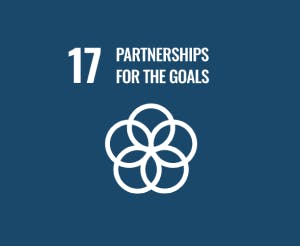
SDG 17: Partnership for the Goals
- Transparency International Gathers Academics, Businesses, Civil society and Government Agencies Calling for the End of Anonymous Shell Companies
